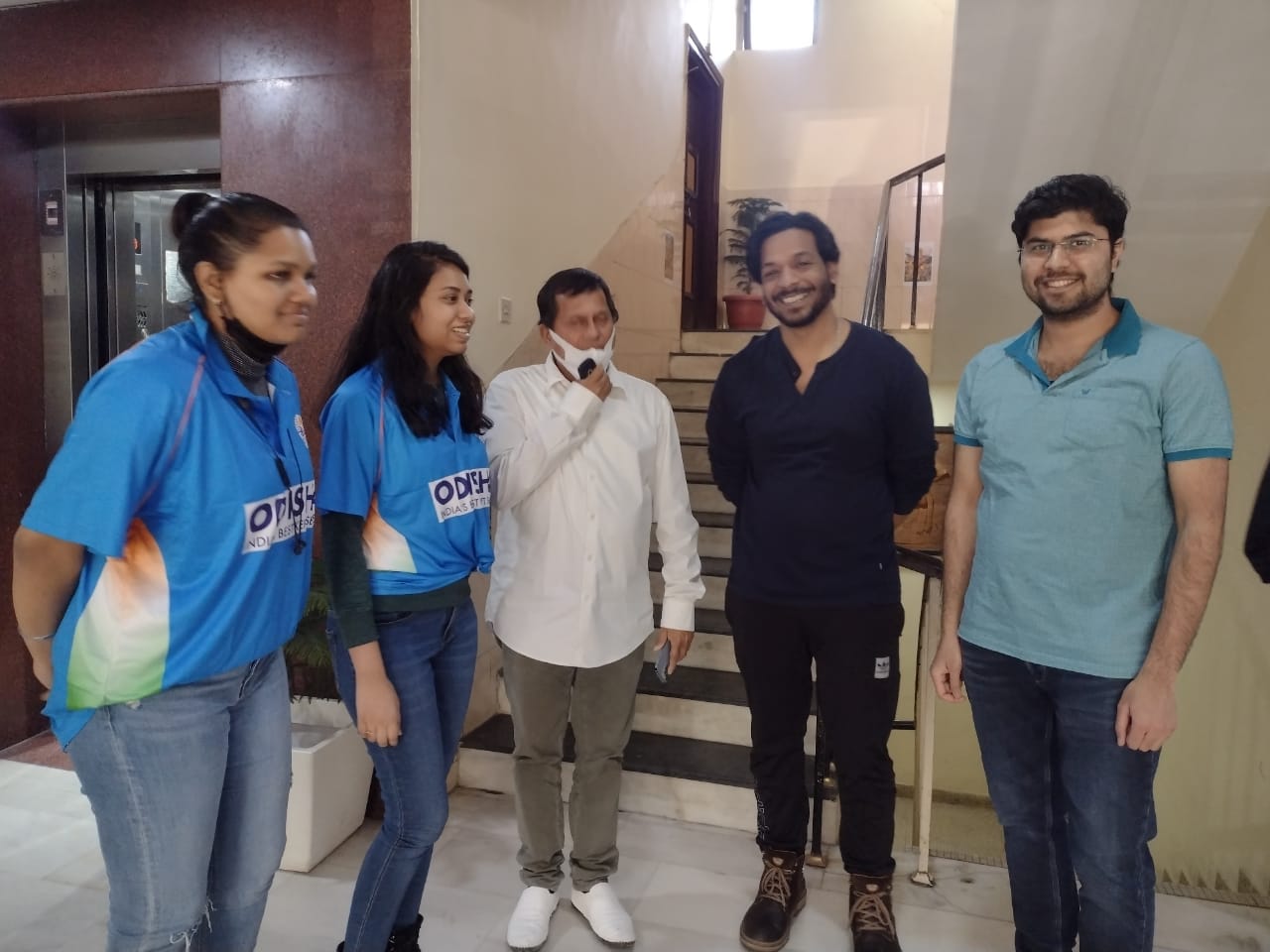War. There are no winners in wars. Just damage, agony and losses.
The damages of war are always long term. Fighters experience war differently than civilians, although both the parties suffer in times of war. I can’t even go to the lengths to mention the sufferings of women and children in particular. Million lives have been lost to wars in the past few decades. The traumas caused by wars have been still growing and causing extensive emotional and psychological stress amongst civilians. This isn’t acceptable. Not in a scientifically global and progressive world. There is nothing that diplomacy can’t handle that countries have to go to war to resolve. The civilians don’t want war and living in a democratic world we should listen to the people. Fundamentally, nothing can justify the death of people because of wars.
The Russian-Ukraine crisis is an example of orthodox war in an modern era. This no-dialogue war isn’t just costing the lives of Russians and Ukrainians, it is also costing the billion people living outside of those two countries. The financial markets are in shambles, commodity prices are skyrocketing and inflation is rising towards the roof.
As an educationalist it concerns me that 18000 students from India are on the tenterhooks and among which there are 800 students from the state of Odisha alone. It is indeed a traumatic situation and the war between Russia and Ukraine is unlikely to be over so soon, it has doubled the worries of India.Developments there, in between, give a message that the war situation might escalate further with Ukraine perceptibly getting the support of other few nations. Which means the war is not anywhere near the end.
Obviously, this standoff grows to be more agonising for the parents whose children are mostly into medical education which is completely a different course unlike other disciplines, are a worried lot and under huge mental pressure and agony.
Not only the entrance but the medical science hardly allows any flexibility. I had requested Union Government to urgently deal with the next problem of academics after they have brought 18000 students back to India safely.
There are 605 medical colleges in India, of which 325 exist in the Private sector. I requested our Hon’ble Prime Minister and Hon’ble Health Minister to come up with a concrete policy for distributing the students to different medical colleges in India at the level they were continuing so that there is no disruption in their academics. Such a visionary compassionate step will secure the future and career of the students and their parents will be relieved.
On average, each college will have to take into its fold 30 students spread across first to fifth year and internship. It won’t create any extra burden on the infrastructure. It will fall well within the norms and standards of the existing medical colleges without any violation. I also requested to see that the fees charged to students should be at par with Government College. The modalities to facilitate such an arrangement can be decided and worked on by the National Medical Council and Ministry of Health.
In conclusion, I would just like to request all to always follow the path of peace, science and culture. Violence shouldn’t be the part of our society. It should and can be avoided by people in power.



India will face a far more difficult situation in the months ahead, given global uncertainty, than it might have expected after the impact of the COVID-19 pandemic begins to wane.
The implications will be both national and international and long term and immediate.
The issues will be political and economic with inter-linkages between them.
Since the war directly and indirectly involves many countries, the implications emerge from the international situation.
It is within that framework that the implications for India and its people can be understood.
War has immediate consequences for global trade, capital flows, financial markets and access to technology. Sanctions being imposed on Russia by the rich countries will not stop the war and nothing much will change in the immediate.
The real impact will be seen over time on political and economic relations between the two sides.
homePOLITICS ECONOMY EXTERNAL AFFAIRS SECURITY CULTURE OPINION VIDEO ANALYSIS MEDIA GOVERNMENT WORLD EDITORS PICK TOP STORIES LIVE WIRE SCIENCE ABOUT USEconomyWhat India Needs To Do To Deal With the Consequences of the Russia-Ukraine WarIndia will face a far more difficult situation in the months ahead, given global uncertainty, than it might have expected after the impact of the COVID-19 pandemic.
The Russian invasion of Ukraine is unlike the many ongoing conflicts in various parts of the world – whether in Arab countries or in Africa or between India and China.
A military superpower, Russia, has decided to invade Ukraine which is backed to a certain extent by the US and NATO.
While the latter have repeatedly stated that they will not send their troops to defend Ukraine, they are imposing tough sanctions against Russia and its rulers.
These will have long-term consequences.
New elements will be introduced into the ‘new normal’ that the world was headed towards due to the ongoing pandemic.
The implications will be both national and international and long term and immediate.
The issues will be political and economic with inter-linkages between them.
Since the war directly and indirectly involves many countries, the implications emerge from the international situation.
It is within that framework that the implications for India and its people can be understood.
War has immediate consequences for global trade, capital flows, financial markets and access to technology.
Sanctions being imposed on Russia by the rich countries will not stop the war and nothing much will change in the immediate.
The real impact will be seen over time on political and economic relations between the two sides.
It is almost certain that the Cold war of the 1950s will reemerge between an Eastern Bloc consisting of Russia and China on one side and the Western powers and their allies on the other side.
Since the world today is far more globalised than in the 1950s, the impact will be greater.
It will also be more since in the 1950s the two blocs already existed while now there is a sudden major disruption.
Global trade will be immediately impacted by sanctions on both sides.
Exports and imports will be hit and the existing supply bottlenecks due to the pandemic will aggravate.
The Western powers are likely to insist on other nations stopping trade with Russia. For instance, they will ask other nations to stop their import of energy from Russia and threaten sanctions against those nations and companies that continue to trade with Russia.
This would include China, otherwise the sanctions on Russia will not bite. Since China is the biggest trading partner for many of the rich countries, this will disrupt trade massively and lead to further supply bottlenecks.
The US may act to increase supply of petro products and ask friendly OPEC countries to also do so, to prevent prices from shooting up and disrupting the world economy.
Ukraine is a major exporter of agricultural produce and their supplies will get disrupted, leading to increase in food prices.
Commodity prices had already been rising and this will continue since some of the critical supplies come from Russia and China.
Consequently, inflation will kick up globally and impact purchasing power of people and weaken demand which was already hit by the pandemic.
With liquidity ruling high due to the quantitative easing during the pandemic, inflation can kick up quickly. This will slow down global growth.
Global capital flows will decline since many countries would want their capital to invest at home rather than abroad.
This along with the sanctions on financial flows will impact the financial markets.
The stock markets will decline not only due to this factor but also due to increased uncertainty facing the world and the likely end of quantitative easing by Central Banks in the face of higher inflation and moves to increase interest rates.
All this will adversely impact private investments.
Growth will be hit as a result of these adverse changes in consumption and investment.
Budgets of nations will be impacted as military expenditures rise.
The already high fiscal deficits in the budgets will rise further and most likely setback social sector expenditures which will impact the poor the most.
The real challenge of India will be for Education of 18,000 Medical Students who were studying in Medical Colleges there.
As suggested by Dr Achyuta Samanta Sir,. Central Govt think tank must focus on it because careers of 18,000 students are at stake.
🙏🙏🙏
The most common negative impacts of war include loss of human lives, economic losses due to destruction of capital as well as disruption of trade, human suffering, the spread of diseases, displacement of people and destruction of the environment, among others.
Hon’ble Sir, all your versions and suggestions walk along side with that approached by Lord Krishna at the Court of Kuru as a step to evade The Great Mahabharat Yudh. But Alas!!!
O/o DyCoE & O/o Dean
School of Civil Engineering
KIIT University, Bhubaneswar
Ground reality & solution reflected
Very minutely explained about Ukraine returned students. A great initiative indeed. You’re great Sir 🙏🙏
That’s such a good way of putting the human resources in the proper places…you talk sense Esteemed Samanta sir ji 🙏 👍
Indeed Sir, it is only the path of peace, science and culture that can lead the mankind to progress. We pray and hope that the further education of our student returnees from Ukraine is continued in India for their bright future and career. Your request to the Union government is indeed praiseworthy and heartwarming.
Pranam Sir 🙏
It is a very good initiative of Hon’ble founder sir. The govt. of India needs to take a call addressing the future of nearly 18000 Medical students studying in Ukraine
It is a very good initiative of Hon’ble founder sir. The govt. of India needs to take a call addressing the future of nearly 18000 Medical students studying in Ukraine. The sooner the war ends the better it is for the world community.